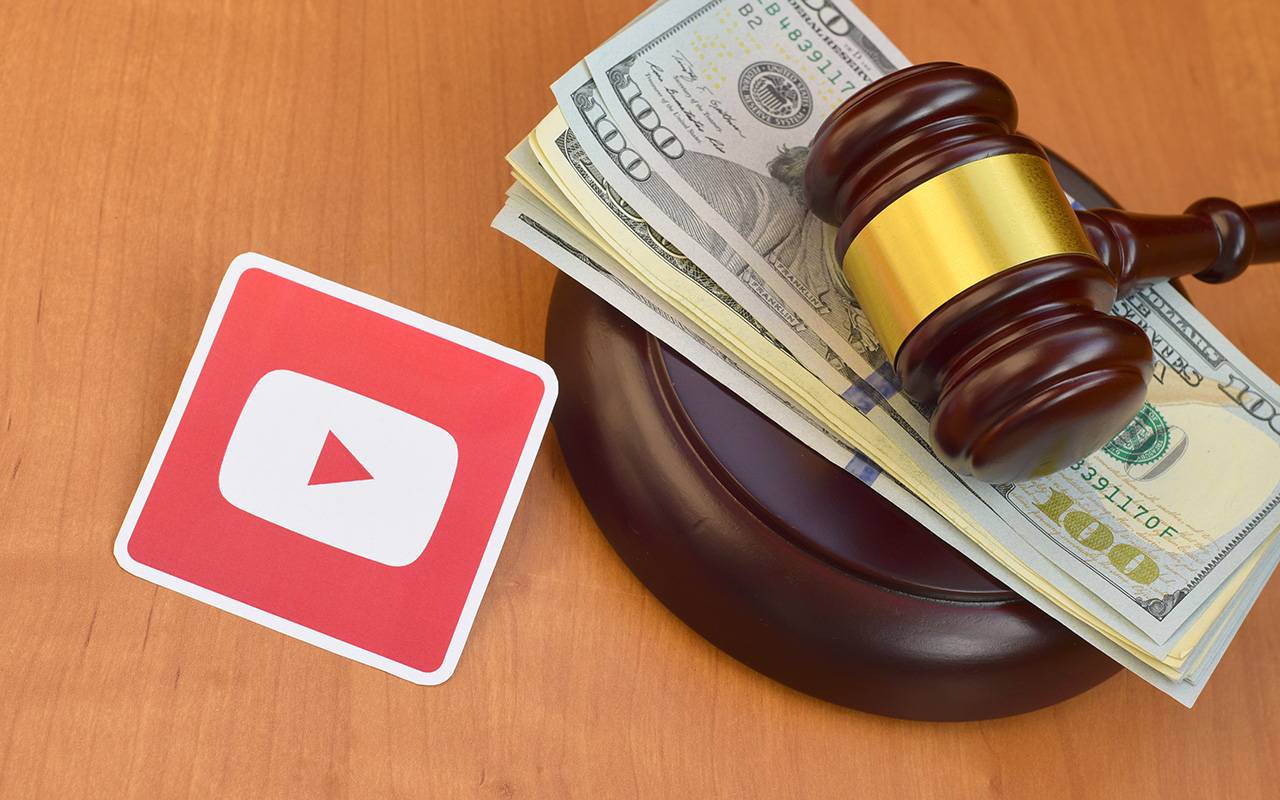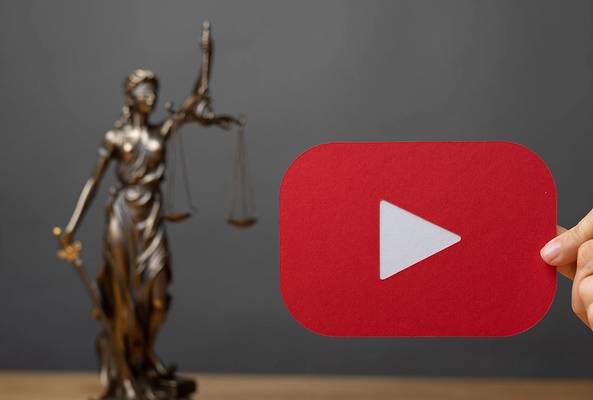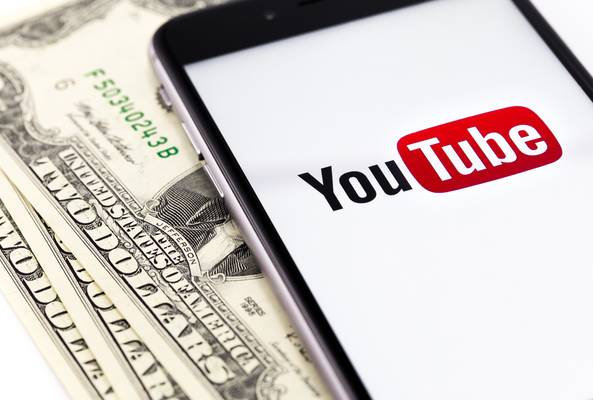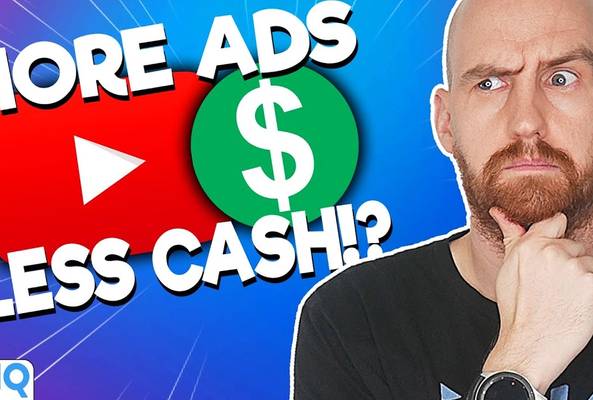Carla Marshall has 10+ years of experience in video marketing, social media management, content marketing, DRM, and SEO. She was previously Editor in Chief at ReelSEO.com, and as a journalist and video marketer, she's covered news stories, creator journeys, and digital-first publishing initiatives across all the major online video platforms. She is YouTube Certified and a judge for the Shorty Awards, as well as the UK, US, Canadian, Global, and EU Search Awards.
YouTube Copyright Claims: Can I Still Monetize My Channel?
JUMP TO SECTION:
- Copyright 101: YouTube Claims vs. Strikes
- Monetizing a YouTube Channel with Copyright Claims
- Applying to the YouTube Partner Program with Copyright Claims
- YouTube Partner Program: Being Rejected Because of Copyright Claims
Receiving a copyright claim affects your ability to make money on YouTube. But the exact ramifications are somewhat of a mystery. Can you join the YouTube Partner Program with active copyright claims? Or will an automatic rejection be hurled your way?
Read More: YouTube Partner Program: How to Monetize Your Channel
Many creators have unintentionally used copyrighted content, so it's a question worth answering.
YouTube fair use aside, let's just say you are guilty of using another person's work. YouTube handles this in two ways: copyright claims and copyright strikes.
Copyright 101: YouTube Claims vs. Strikes
So what does a copyright claim mean on YouTube?
You'll receive a copyright claim when your video contains media protected by copyright. That could be music, a movie clip, images, a speech – virtually anything that doesn't belong to you or you don't have permission to use.
YouTube's Content ID system looks for media matches as soon as you upload a video.

If it finds a match, you're alerted on the spot and have several options going forward:
- Remove, replace, or mute the copyrighted medium from your video.
- Share revenue with the copyright holder.
- Dispute the copyright claim.
Read More: How to Get Rid of Copyright Claims on YouTube
When you receive a copyright claim, YouTube, as a third party, is saying:
- You can use the copyright-protected content, but the owner has the option to earn ad revenue from your video.
- The copyright owner can restrict the viewing of the video to specific countries.
- Ultimately, the copyright owner can choose to do nothing. But that doesn't mean you'll end up making money from the video.
A copyright strike means the owner of the intellectual property you're using isn't playing around.

Getting a copyright strike means:
- The copyright owner is asserting their rights and can have your YouTube video removed.
- You may not be able to monetize your videos.
- If the copyright strike is on a live stream, you may lose streaming privileges for 90 days.
- YouTube will terminate your channel after three copyright strikes.
And the consequences might not end there. In extreme cases, you could find yourself in legal hot water and have to defend yourself in court.
Copyright laws are complicated. Watch this video to learn more about YouTube claims and strikes.
It's also worth mentioning that non-monetized channels can receive copyright claims and strikes. And you don't need any views or subscribers to find yourself in trouble. All it takes is one video with copyrighted material.
Monetizing a YouTube Channel with Copyright Claims
Now that you have some background, we can finally answer this question: Can you monetize a channel that has copyright claims?
As usual, it's never a black or white answer when it comes to YouTube. But the platform has clear requirements for applying to the YouTube Partner Program, and we can start there to get our answer.
- Gaining more than 1,000 subscribers.
- Accumulating 4,000 Watch Time hours in a 12-month period.
- No active community guideline strikes.
- Complying with all of YouTube's rules – terms of service, community guidelines, copyright policies, AdSense program policies, and advertiser-friendly content guidelines.
- Having a Google AdSense account linked to your channel.
- Living in a country where the YouTube Partner Program is available to creators.
If you just needed the first two requirements, applying would be easy. But you need to comply with every rule to monetize your channel – and those rules include copyright policies.
Because everything is so complex, YouTube uses human reviewers to assess every channel.

A human reviewer will look for these things when checking your channel:
- Main channel theme
- Most-viewed videos
- Recent videos
- Videos with the most Watch Time
- Video metadata, like descriptions, thumbnails, and titles

It's not a complete list of everything YouTube looks for. But in terms of copyright claims and how they'll affect your application, Most Viewed Videos and Biggest Proportion of Watch Time probably have the most impact.
So, yes: You have a better chance of monetizing your channel if your most-viewed videos don't have copyright claims.
Applying to the YouTube Partner Program with Copyright Claims
Let's say you have 10 videos on your channel, and one of them has a copyright claim. The video in question is pretty popular and accounts for 60% of your channel's Watch Time.
Now, imagine the reason your video got so much attention is because you used copyrighted content.
In that case, have you really reached 4,000 hours of Watch Time within the spirit of YouTube's monetization program? After all, you used someone else's content for a massive push.
Read More: Make Money on YouTube - How to Get 4,000 Hours of Watch Time
On the flip side, let's say a creator has hundreds of videos on their channel, and four or five of them have copyright claims. But those videos account for just 20 to 30 hours of the channel's total Watch Time. The human reviewer at YouTube is probably going to recognize that as nothing to be concerned about.
And to be clear, this is hypothetical. I'm not saying this as fact; I'm just putting myself in YouTube's shoes.
So if you have a copyright claim or strike on your channel, will you be rejected from the YouTube Partner Program 100% of the time? No, but bear in mind that copyright strikes are severe.
If your channel has no copyright claims or strikes, will you automatically be accepted into the YouTube Partner Program? Again, no. You have to consider the other community guidelines too.
YouTube Partner Program: Being Rejected Because of Copyright Claims
If you use someone else's content enough to annoy YouTube, they will reject your application to the YouTube Partner Program via email. The platform may use duplicate or reused content as the reason.
There is a silver lining, though. You can reapply after 30 days, and in that time, you can fix some of the issues that might've led to your rejection.
At the same time, YouTube won't tell you specifically what's wrong with your channel. It might list a particular video that needs to be removed or ask you to get rid of some copyright-claimed videos. Either way, you have to work it out yourself.
Want to avoid copyright claims on YouTube? Use original content that belongs to you as much as possible. You won't have anything to worry about if you stick to the content you've created yourself.



